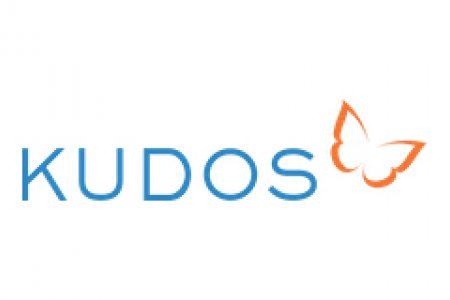Make your visibility RISE (part 2)
On June 21 2018, my colleagues and I presented how to increase the visibility of both your research and yourself. You can find an overview of the afternoon elsewhere, but I'm sharing my presentation in full here, as an update to my 2015 WISE presentation .
On June 21 2018, my colleagues Michelle van den Berk and Rutger de Jong and I presented on how to increase the visibility of both your research and yourself at an event organised by the Leiden University Faculty of Science’s RISE Network. You can find a short overview of the afternoon on a different post, but I wanted to share my prepared remarks and the slides for my presentation in full as an update to the post for the WISE presentation I gave in 2015.
RISE Social Media
So now that you’ve learned all about visualisations to discover how to make your publications more easily findable and how publishing Open Access will make them more accessible. How do you then disseminate your research to a wider audience of both your peers and the general public? One option is social media.
Now before we launch into the presentation fully, let me explain my aim for this presentation. I’m not here to evangelise for social media. Yes, I’m a fan, but that doesn’t mean you have to be. My goal for this next half hour or so is to give you a starting point from which to make a well-balanced choice as it regards the use of social media as an academic. Whether you choose to use them or not, as long as you know why, my goal has been achieved. Let’s go!
These days there is more and more pressure in academics to not just do excellent research and publish about it, you are also expected to communicate your research across different channels, whether through poster presentations, public lectures, interviews, blogposts for sites like The Conversation, or social media. The university wants you to tell the world about the import of your research.
But the question of whether you should use social media to do so is hotly debated. There have been many thoughtful (and not so thoughtful) think pieces on the topic, with many different takes, including on its efficacy, efficiency, worth, and – to pull it into a RISE sphere – on whether it can equalize the playing field.
Earlier this year there was a kerfuffle over an op-ed published in Science in which Meghan Wright made the case, especially for Instagram, that #scicomm often was too gendered and didn’t actually help combat systemic failures. And that time spent on #scicomm is time not spent actually researching and disadvantages women more than men.
There was a LOT of pushback, so much so that in the April 13 issue the entire letter section was filled with letters refuting the premise of Wright’s essay and protesting what was viewed as an ad hominem attack on Science Sam a.k.a. Samantha Yammine, the researcher and science communicator identified in the op-ed.
Before I make my case for social media, what do you think? Let’s take a few minutes to discuss these questions.
So distilling some of the benefits: social media can help you stand out from the crowd and increase your visibility as an expert in your field. It certainly increases representation, showing the diversity of the work, so not just in the lab in a white coat, but also wearing waders , standing in a ditch, behind a desk coding a programme, or on a mountain top looking through a telescope. But also the diversity of the people doing the work, which brings us to #scientistswhoselfie, a research project currently run by Samantha Yammine and Paige Jarreau from LSU. This project investigates how scientists' Instagram posts may change public perceptions of scientists.
Of course there are also concerns. The ones you mentioned, but other things we hear a lot is the fact that people think it is a waste of time, concerns around privacy issues, trolls and nuance. Being a person on the internet with an opinion will most likely afford you one or two adverse reactions of people who do not appreciate your opinion, commonly called trolls. This is online life in the 21st century unfortunately and you will have to think about how to handle these. Nuance, or getting your ideas across in a nuanced way, is hard in 140 (or 280 now) characters and academics a wary of losing the opportunity to elucidate their remarks.
Now to make the case for social media. First let’s define what I mean by social media. These are all platforms that might come to mind when you hear social media, but today I’m limiting it to social media with “broadcast” abilities that are accessible to everyone.
So the case for social media. They allow you to discover people and information. Who is working in your field? What are they doing? Not everyone has been published yet, for example early career PhD-students, but their work might be interesting in light of your own. What are people in your field reading? Not just which papers or books are they reading, but which blog posts and what are they saying about them? They allow you to connect to people and create knowledge network of peers and to come in contact with those interested in your work, whether your peers, the media or the general public. Or to find a group of people with a common goal, such as for example Athena’s Angels. Collect information, both in terms of new research articles you should read and actual research data. You can collaborate or perhaps, for those of you familiar with #phdchat on Twitter, commiserate with your peers. You can communicate to promote your work & to reach the general public to promote your field. And lastly, you can use it to monitor what people are saying about your work, through altmetrics etc.
You need to strategize.
- Know your intended audience: Are you aiming at peers (maybe look at Twitter) or are you looking to connect to patient interest groups? (Facebook might work better.)
- Determine your goals ahead of time. Do you want to create a peer network? Promote your research? Put yourself out there as an expert? Promote your field?
- Consider your public vs private self. Are you comfortable mixing those or do you want to create separate streams. When using Facebook, how will you respond to friend requests from peers, students, or patients?
- Craft your message. Know what you want to communicate and have different versions of that message for different situations.
- Hone your voice. How do you want to come across? Be consistent in your use of language, tone & humour.
Now for some practical tips.
- To make sure you can just spend the assigned time on social media tasks once a week or so, instead of every day, preschedule posts. You can sometimes do it on the platform itself or you can use a service such as Buffer.
- Images and video always catch the eye, so if you can add a visually interesting (and relevant) image or a video, that will help it being picked. Furthermore, if you share your video on YouTube, you can then share that on Twitter and Facebook and then you’ve hit three in one.
- Feel free to experiment (with platforms and content). Find out which platform works best for you and your goals and which content will reach your intended audience.
- Don’t be afraid of making mistakes (within reason!) Everyone will make a mistake, but unless you curse out your supervisor, personally attack someone or say or do something really egregious, you will be fine.
- Don’t give up too quickly, building an audience takes time.
- Fit your medium to your message (but use what works for you) So if you are doing a visually-rich study, Instagram might be a great platform, but if you hate being photographed you may not feel comfortable there.
- NOTE: (and I can’t stress this enough) Social media isn’t for everyone; if it doesn’t work for you, it doesn’t work for you and you shouldn’t force yourself to do it.
You can find a lot of information on social media platforms and tools on our blog Digital Scholarship @ Leiden. You can also find information on Open Access developments, ORCID, Data management and more. If you have any further questions, don’t hesitate to contact me.





